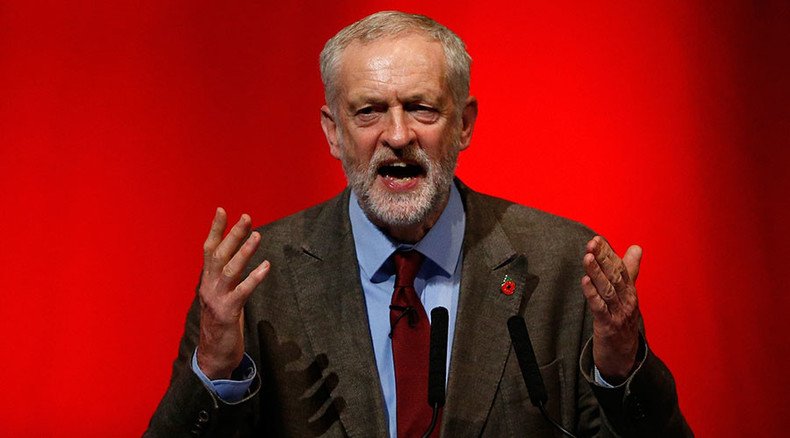Place sanctions on banks and states funding ISIS, says Corbyn

States and financial institutions suspected of managing or providing funds to Islamic State (IS, formerly ISIS/ISIL) should have sanctions placed on them, Labour Party leader Jeremy Corbyn told MPs.
Speaking to the House of Commons, the Labour leader urged Parliament to take more action to clamp down on institutions which provide “vital infrastructure” to the terror group in Syria and Iraq.
Corbyn said one of the main ways to stop IS from functioning is to cut off its resources, suggesting the EU would also need to play a part in suffocating the organization.
“Surely a crucial way to help defeat ISIL is to cut off its funding, its supply of arms, and its trade,” Corbyn said during prime minister’s questions (PMQs).
“Can I press the prime minister to ensure that our allies in the region, indeed all countries in the region, are doing all they can to clamp down on individuals and institutions in their countries who are providing ISIL with vital infrastructure?
“Will he, through the European Union and other forums if necessary, consider sanctions against those banks and companies and if necessary countries which turn a blind eye to those who do dealings with ISIL who assist them in their work?” he asked.
Prime Minister David Cameron responded saying the UK is already playing “a leading role” in starving IS of funds, but warned it could not be the only British response to the extremist group.
“We cannot dodge forever the question of how to degrade and destroy ISIL both in Iraq and in Syria, … yes, go after the money, go after the banks, cut off their supplies, but don’t make that a substitute for the action that’s required to beat these people where they are,” he said.
Corbyn has previously criticized Saudi Arabia for failing to stop resources and money being sent to IS.
“Saudi Arabia, maybe not at government level, but certainly at aid-level, has been providing support to ISIL,” he said.
Cameron is currently preparing the House of Commons for a vote to extend British airstrikes from Iraq into Syria.
The prime minister has said he will not hold the vote until he is guaranteed enough backing to pass it, but it is thought the terror attacks in Paris last week will have bolstered support for more airstrikes.
At the G20 summit in Turkey on Monday, Cameron expressed his interest in working more closely with Russia, which is already launching airstrikes in Syria against IS targets.
Speaking in the House of Commons on Tuesday, Cameron said the attacks in Paris on Friday justify a “full spectrum approach,” including military power, counter-terrorism action and countering the narrative of extremism.
“It is in Syria, in Raqqa, that ISIL has its headquarters and it is from Raqqa that some of the main threat against this country are planned and orchestrated. Raqqa, if you like, is the head of the snake.
“Over Syria we are supporting our allies the US, France, Jordan and the Gulf countries with intelligence, with surveillance and with refueling. But I believe, as I have said many times before, we should be doing more. We face a direct and growing threat to our country and we need to deal with it, not just in Iraq, but in Syria too.”












